Outcast of the Islands (1951)
“Does the white man know what is best for us?”
|
Synopsis: |
|
Genres, Themes, Actors, and Directors:
Review: We understand that Richardson — who first took Howard under his wing at the age of 12 — hopes Howard will redeem himself, but it’s not really clear how. Yes, Howard helps Richardson navigate his boat through undeniably tricky channels: … but expecting Howard to simply “stay put” at the trading post seems disastrously naive. There’s plenty of tension and atmosphere in Morley’s household, and the casting of Morley’s real-life look-alike daughter Annabel seems inspired: But whenever Reed’s wandering camera pans across the locals looking with bemusement, wonder, or disdain at the whites around them (who can blame them?), we’re reminded this is primarily a tale of a self-created “outcast” who really can’t (won’t) fit in anywhere. We also know right away that Howard’s obsession with sultry, wild-eyed Kerima (giving a one-note performance) will inevitably lead him down a path of ruin: The problem is, we don’t really care what happens to him, and are equally unsure how to feel about the troubles obnoxious Morley gets himself into: In the film’s favor are beautiful cinematography and fine location shooting in Sri Lanka (matched with studio footage done back in England); however, only fans of Reed’s work should consider this must-see. Notable Performances, Qualities, and Moments:
Must See? Links: |
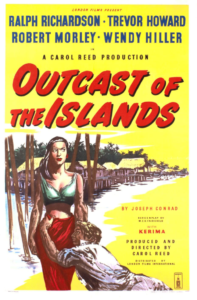
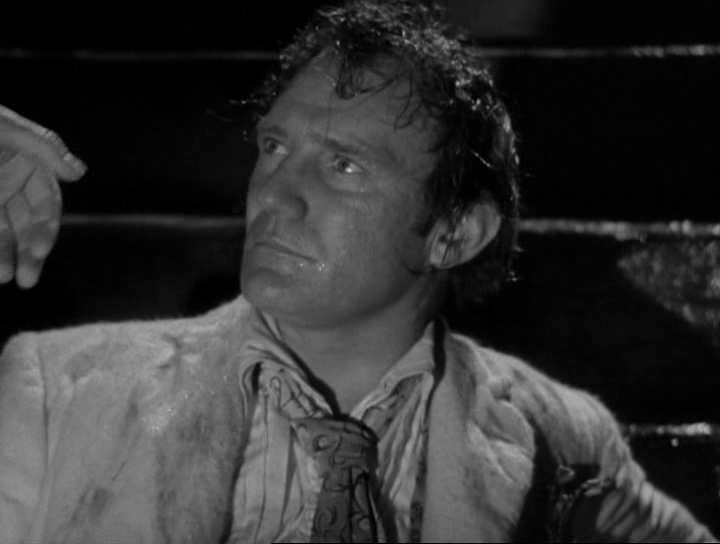
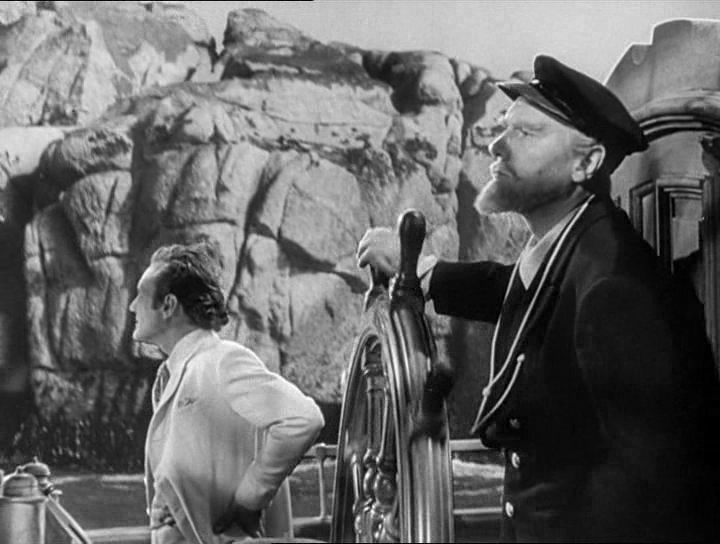

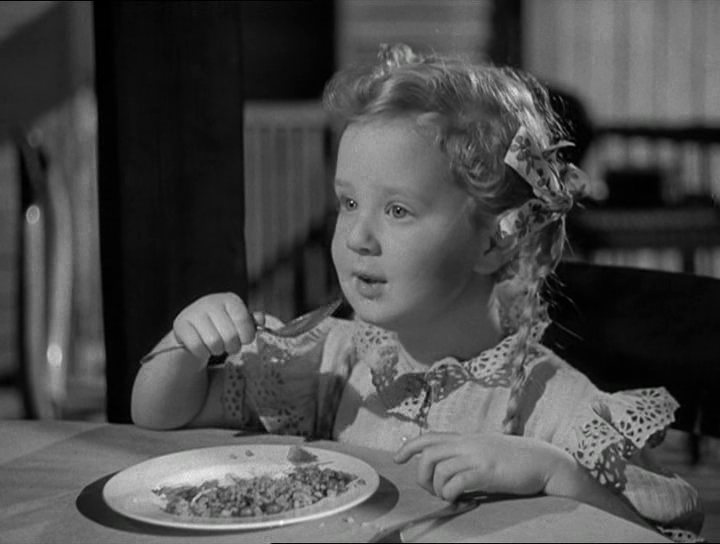
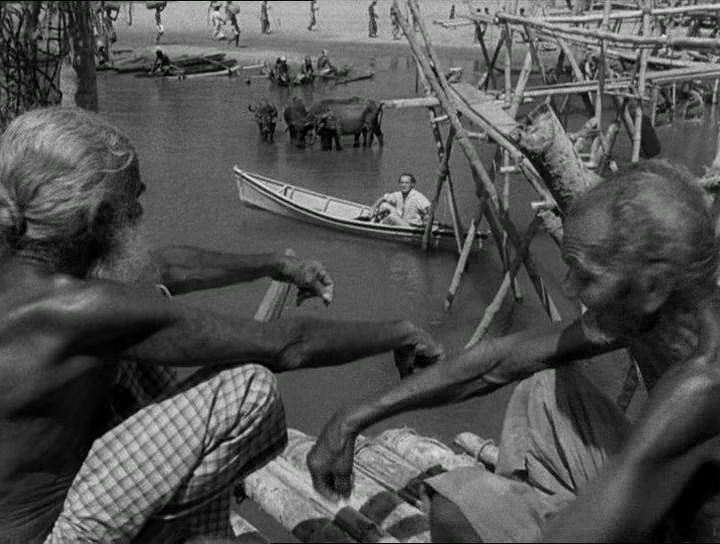
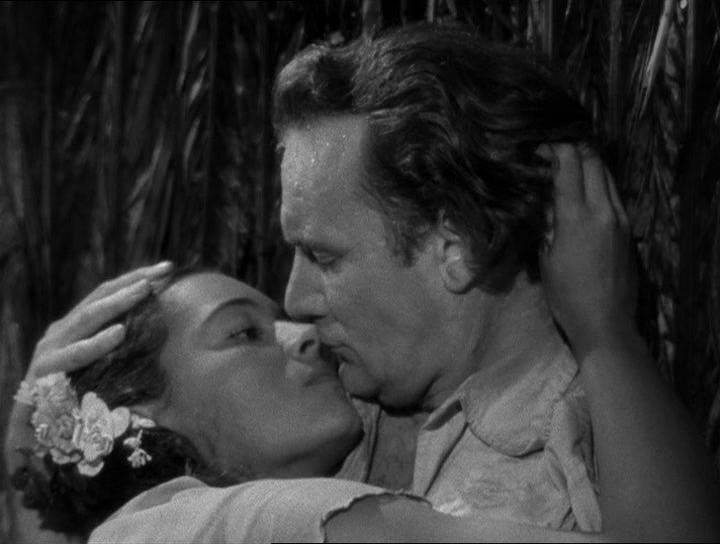
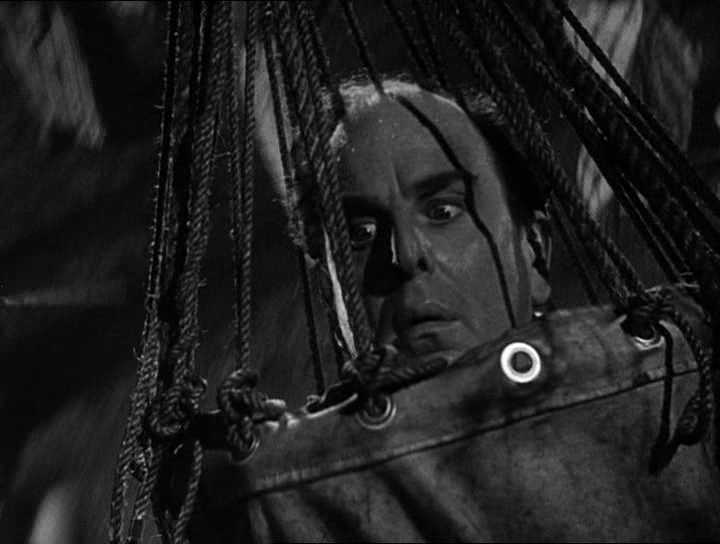

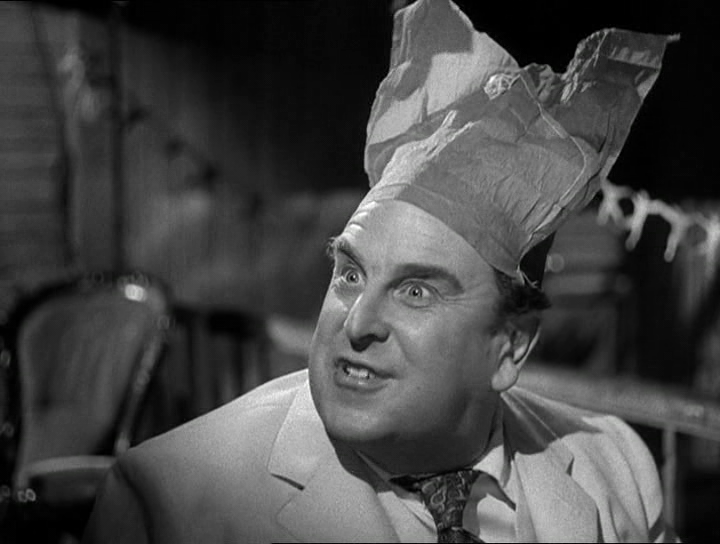
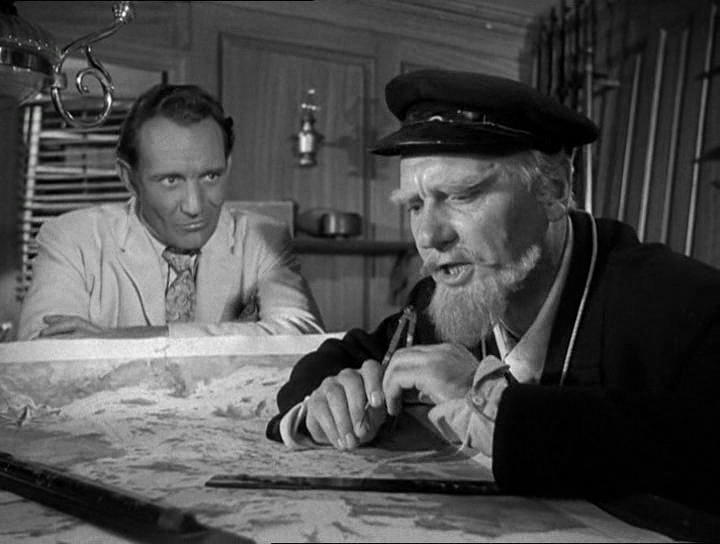
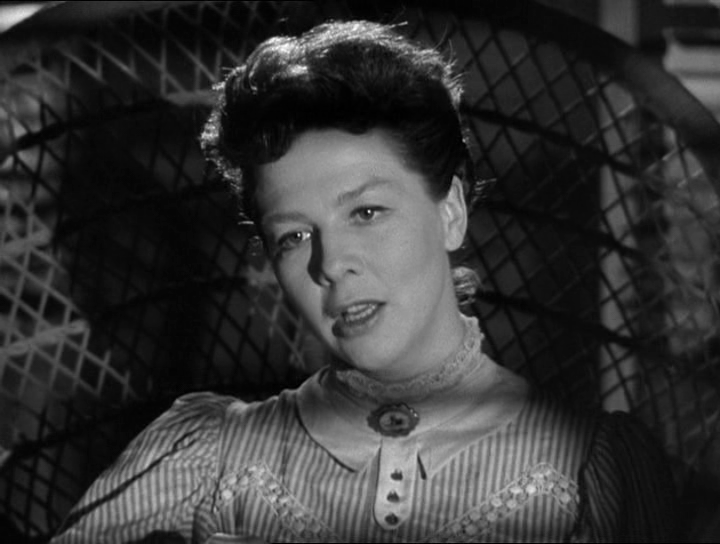
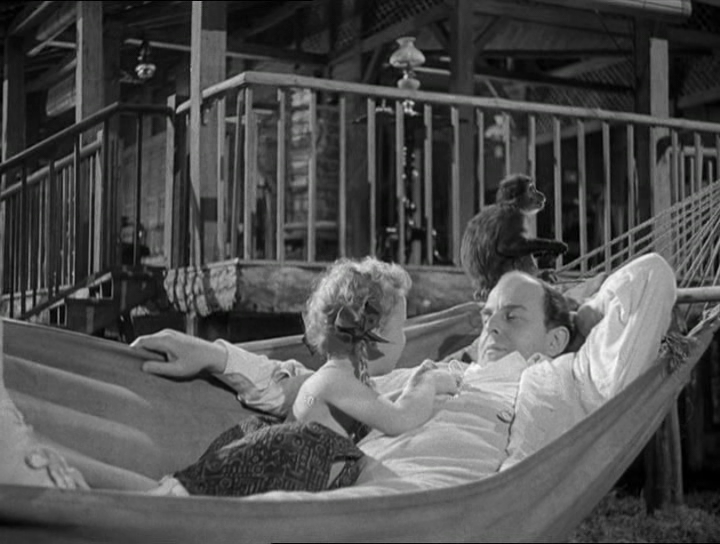



One thought on “Outcast of the Islands (1951)”
First viewing. A once-must, for Reed’s direction and Howard’s atypical performance.
Yes, this is a fairly unpleasant tale – but that’s its power. I started watching it late last night – which can be the start of a true test of a film; if the viewer is beginning to feel tired, he/she may be less likely to be pulled in. But pulled in I was, from start to finish.
My interest was also tentative at first because (to me) a Conrad tale can be daunting. However, Reed’s direction was easily noticeable as precise and he seemed to be swiftly moving through his story with admirable economy. It seemed to fly by.
Howard’s Willems is clearly detestable (and pointlessly smug) from his first scene – and it was fascinating watching the actor not shy from that. I don’t recall seeing the actor being quite this slimy before (if he has been, it’s just not coming to mind) and his control in his portrait of self-service is thorough and often subtle.
It’s true that Richardson’s character is naïve – and even sentimental; he will ultimately take himself to task for those flaws.
While I didn’t particularly care what happened to Willems, I cared about the valuable story’s resolution… while simultaneously being conscious of an omnipresent tension which brought to mind Reed’s work on ‘The Third Man’ and ‘Odd Man Out’ in particular.